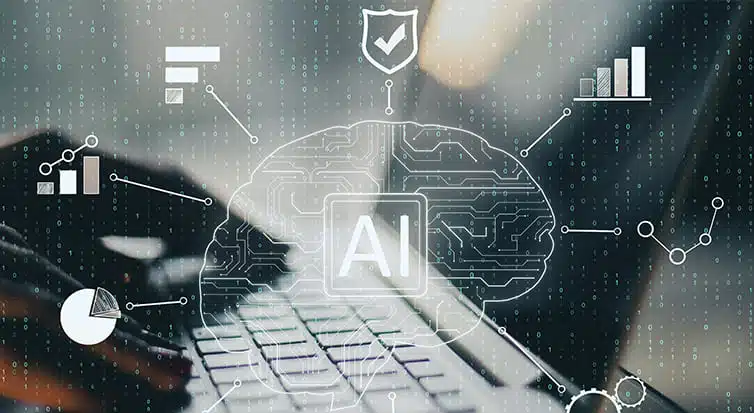In an era where technology permeates every facet of our lives, the accounting industry stands at a pivotal crossroads. Artificial Intelligence (AI) has emerged not merely as a tool but as a transformative force, reshaping how financial data is analyzed, processed, and interpreted.
As businesses grapple with increasing complexities and a mounting avalanche of information, the integration of AI could herald a new dawn for accountants, shifting their roles from number-crunchers to strategic advisors. From automation of mundane tasks to the intricate analysis of financial trends, AI is rewriting the rules, unlocking efficiencies, and offering insights that were once thought to be the realm of high-level human intellect.
But what does this mean for the future of accounting? Is AI set to replace the accountant, or will it enhance and elevate their profession in ways we are only beginning to understand? This exploration delves into the ways AI is shaping the industry, unveiling the opportunities, challenges, and the evolving landscape of accounting in the digital age.
Understanding AI: What It Means for the Accounting Sector

Artificial Intelligence is making waves in the accounting sector, fundamentally altering traditional practices and redefining efficiency. Imagine a world where mundane tasks—data entry, transaction categorization, and reconciliations—are seamlessly handled by intelligent algorithms, freeing accountants to focus on strategic analysis and advisory roles.
This shift isn’t just about automation; it signifies a larger transformation in how financial data is managed and interpreted. With AI tools capable of performing complex analyses at astonishing speeds, professionals can uncover insights from mountains of data that would have taken human teams weeks or months to decipher.
However, while these advancements promise greater productivity and accuracy, they also raise crucial questions about the role of human expertise in a landscape increasingly dominated by technological prowess. The future may not merely be a matter of machines versus humans; instead, it likely will be a collaborative environment where both thrive, reshaping the very fabric of the accounting profession.
Automating Routine Tasks: The Future of Bookkeeping
As the landscape of bookkeeping evolves, automating routine tasks emerges as a beacon of efficiency and accuracy in the accounting sector. Picture a world where mundane data entry, invoice processing, and reconciliation are seamlessly handled by intelligent algorithms, enabling accountants to focus on strategic analysis and client relationships.
Automation tools powered by AI not only reduce human error but also accelerate workflows, transforming what once were labor-intensive processes into swift operations. Just think: while an accountant sifts through mountains of receipts and spreadsheets, their digital counterpart is tirelessly crunching numbers and categorizing expenses in the blink of an eye.
This shift not only redefines the role of accountants—turning them into advisors rather than mere number crunchers—but also opens the door to new business models that can adapt rapidly to changing market dynamics. In effect, the future of bookkeeping is not just about managing ledgers; its about harnessing technology to empower professionals to add value where it truly counts.
AI-Powered Decision Making: Strategic Insights for Accountants

AI-powered decision-making is revolutionizing the accounting landscape, infusing traditional practices with unprecedented insights and efficiency. By analyzing vast amounts of data in real-time, these intelligent systems can reveal trends that might otherwise go unnoticed, allowing accountants to forecast outcomes with remarkable accuracy.
Picture a scenario where predictive analytics highlight potential cash flow issues months in advance, or where machine learning algorithms sift through transactions to flag anomalies that could indicate fraud. This isn’t just about crunching numbers; its about enhancing strategic foresight and enabling accountants to move from a reactive to a proactive stance.
As the industry embraces these cutting-edge tools, the role of the accountant evolves, transforming them into strategic advisors equipped with deep insights that drive business growth. The future isn’t just around the corner—it’s already reshaping the very fabric of accounting.
Conclusion
In conclusion, the integration of artificial intelligence into the accounting sector marks a significant shift in how financial services are delivered and managed. As AI streamlines processes, enhances accuracy, and provides valuable insights, it positions itself as an indispensable tool for modern accountants.
The evolution of roles, particularly in areas like Financial Controller Recruitment, reflects the growing demand for professionals who can harness AI technologies to drive strategic decision-making and operational efficiency. As we move forward, embracing AI will be crucial for accounting firms and professionals, ensuring they remain competitive in an ever-evolving landscape.
The future of accounting not only lies in technological advancement but also in the human ability to adapt and innovate alongside these tools, shaping a more efficient and insightful financial landscape.


